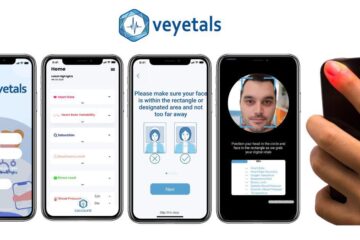Image Credit: Canva
Telemedicine, the provision of healthcare services remotely through technology, has revolutionized the way patients receive medical care. It offers numerous benefits, such as improved access to healthcare, convenience, and cost-effectiveness. However, with the increasing use of telemedicine, ethical considerations arise, particularly in relation to patient privacy and the secure handling of sensitive medical information. This blog explores the ethical challenges faced in telemedicine and the importance of balancing patient privacy with the need for accessible and efficient care.
- Patient Privacy Concerns
One of the primary ethical concerns in telemedicine is the protection of patient privacy. Transmitting medical information over digital platforms raises questions about data security, confidentiality, and the potential for unauthorized access. Healthcare providers must ensure robust security measures to safeguard patient data, including encryption, secure data storage, and strict access controls. Respecting patient privacy rights is vital to maintain trust and confidence in telemedicine services.
- Informed Consent and Autonomy
In telemedicine, obtaining informed consent from patients becomes even more crucial. Patients should be fully informed about the potential risks, benefits, and limitations of remote consultations, as well as any potential privacy concerns. Ensuring patients have a clear understanding of telemedicine services enables them to make informed decisions about their healthcare. Respect for patient autonomy should be a guiding principle in telemedicine practice.
- Maintaining Quality of Care
While telemedicine offers improved access to care, it is essential to maintain the quality of healthcare delivery. Healthcare providers must have the necessary qualifications, skills, and knowledge to provide telemedicine services effectively. Adhering to established clinical guidelines and standards is essential to ensure accurate diagnoses, appropriate treatment plans, and effective monitoring of patients’ conditions. Ethical responsibility lies in maintaining the same level of quality and professionalism in telemedicine as in traditional in-person care.
- Equity and Accessibility
Telemedicine has the potential to bridge the gap in healthcare access, particularly for individuals in remote areas or those with limited mobility. However, ensuring equitable access to telemedicine services is vital to prevent further disparities in healthcare. Ethical considerations include addressing issues related to technological infrastructure, digital literacy, and socioeconomic barriers that may hinder equal access to telemedicine. Striving for equitable access helps ensure that telemedicine benefits reach all segments of society.
- Continuity and Coordination of Care
Maintaining continuity and coordination of care is crucial in telemedicine. Healthcare providers must establish effective communication channels to collaborate and share patient information securely. This ensures that patients receive comprehensive and coordinated care, especially when multiple healthcare providers are involved. Ethical responsibility lies in minimizing fragmentation and ensuring seamless transitions between telemedicine and in-person care when necessary.
- Professional Boundaries and Relationships
Telemedicine introduces unique challenges in establishing and maintaining professional boundaries and relationships. The absence of face-to-face interactions can impact the provider-patient relationship, making it important for healthcare providers to establish rapport, empathy, and effective communication remotely. Upholding professional ethics, including maintaining confidentiality, avoiding conflicts of interest, and adhering to appropriate prescribing practices, is essential in telemedicine.
- Technological Competence and Security
Healthcare providers utilizing telemedicine must possess the necessary technological competence to navigate digital platforms effectively. It is crucial to stay updated with technological advancements, privacy regulations, and security protocols. Healthcare organizations should invest in robust telemedicine platforms and provide appropriate training to ensure the secure handling of patient information. Ethical responsibility lies in utilizing technology responsibly and prioritizing patient privacy and data security.
Conclusion
Telemedicine offers significant benefits in improving healthcare access and convenience. However, ethical considerations must be at the forefront to maintain patient privacy and ensure the highest standards of care. Balancing patient privacy with the need for accessible and efficient care requires robust security measures, informed consent, equitable access, continuity of care, professional boundaries, and technological competence. By addressing these ethical challenges, healthcare providers can embrace telemedicine while upholding patient rights, trust, and the principles of medical ethics in the digital age.
Introducing Veyetals, the cutting-edge contactless vitals monitoring app that is revolutionizing healthcare management. Our cloud-based API is lightweight and seamlessly integrates with the healthcare apps and platforms that matter to you most. With Veyetals, you can measure patient vitals in real-time, enhancing the continuum of patient care and improving health outcomes.
But Veyetals doesn’t stop there. Our app is interoperable with other health management solutions, ensuring information sharing between different systems and providing a holistic view of patient health. Plus, our easy-to-use interface makes it simple for healthcare providers to stay on top of vital signs and respond quickly to changes in patient health.
Ready to join the future of healthcare management? Contact us HERE to learn more about Veyetals. And don’t forget to follow us on LinkedIn for the latest updates and insights.



